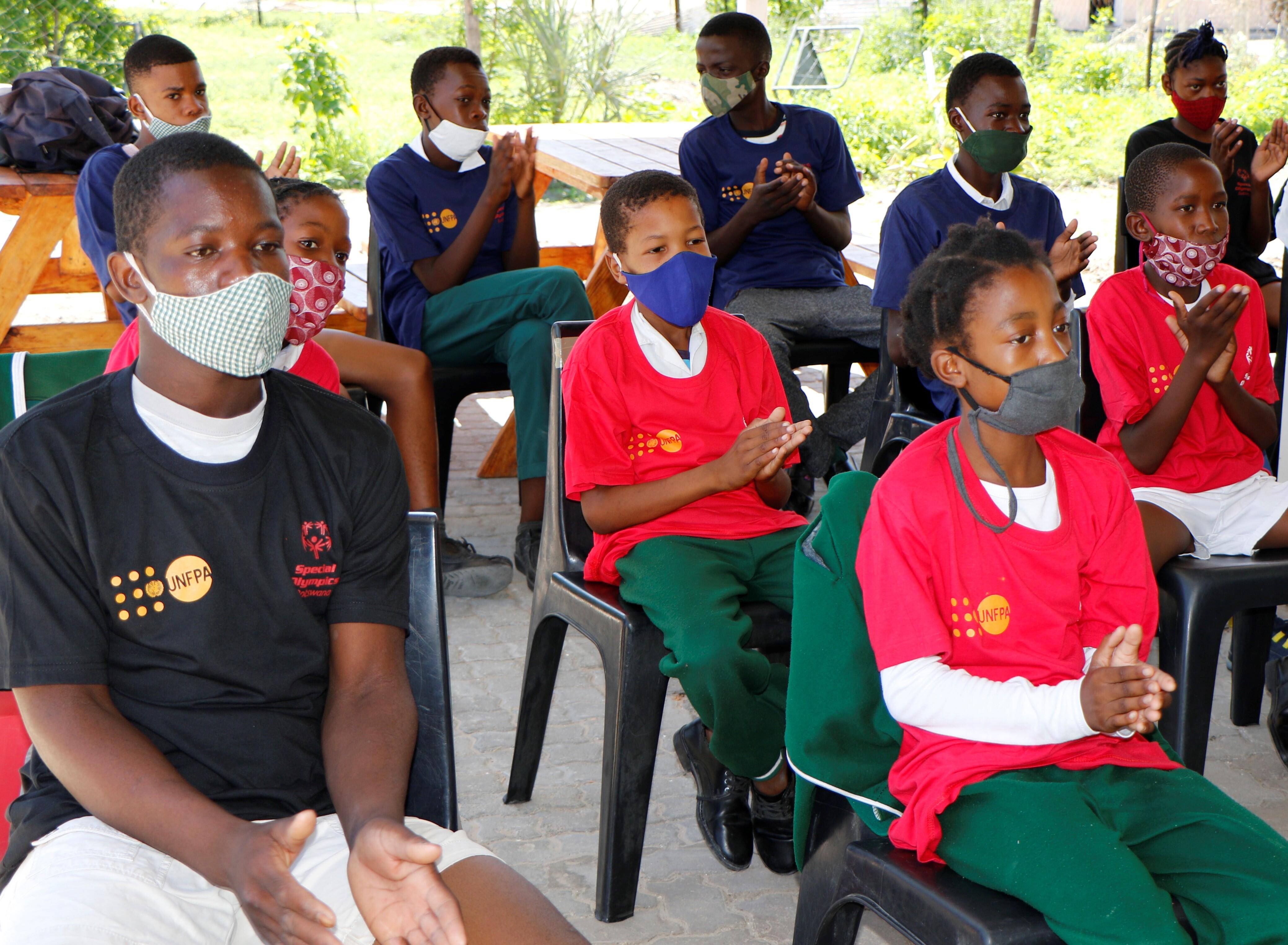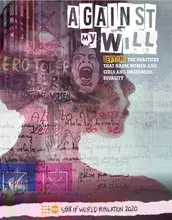Maun, BOTSWANA- As part of the global collaboration between Special Olympics and the United Nations Population Fund, UNFPA Botswana partnered with Special Olympics Botswana to commemorate the International Day of Persons with Disabilities on December 3, 2020 under. The theme of the commemoration was Building Back Better: towards a disability inclusive, accessible and sustainable post COVID-19 world.
Speaking at at Moremi III Memorial School in Maun, UNFPA Botswana Head of Office, Mareledi Segotso explained that UNFPA has partnered with Special Olympics globally to empower youth with intellectual disabilities especially girls and women to receive increased social protection and greater access to health services, including sexual reproductive health needs.
She emphasized that UNFPA believed that people with disabilities deserved better, highlighting that they should be given adequate resources and opportunities to reach their full potential.
Ms. Segotso encouraged the students to hold on to their dreams and ambitions, interests and desires, and hopes for their future just like any other young person.
“Because you are empowered, I urge you to voice out your dreams, because your dreams are valid. Help the community and families understand that,”
She further appealed for the community to protect the rights of people with disabilities, especially sexual and reproductive health rights. She lamented that young people with disabilities face persistent social disadvantages worldwide stemming from discrimination, stigma and prejudice, and the routine failure to incorporate disability into policies and programmes.
A representative from Special Olympics Botswana, Ms. Dineo Tshosa said through the partnership, they have been able to deliver tailor-made messages on SRH services and COVID-19 preventative measures and protocols to young people with intellectual disability through a UNFPA Botswana radio programme in Yarona FM called; Don’t Get it Twisted. She further highlighted that their goal was to improve access to quality health care for youth with intellectual disabilities, explaining that access to health services gave them better opportunities for education, employment, sports and other pathways to reach full participation in society.
Moremi III Memorial School has a total enrolment of 919 students, divided into three sections being mainstream; standard one to seven (721 students), pre-school (105 students) and the special education unit which has 93 students with intellectual disabilities.
The School Head, Ms. Setlhare said despite the challenges they encounter, some athletes from their special unit were doing exceptionally well. She said the school was proud to have produced athletes who participated in the national and international competitions, stating that in 2019 their athletes brought 8 gold, 13 silver and 12 bronze medals in the regional competitions and 2 gold, 4 silver and 10 bronze in the national competitions, whereas in the international competitions they brought a bronze medal and a cash price of BWP 50.000.
The events reached 320 young people with intellectual disability in 15 different schools across the country in Tutume, Kang, Francistown, Maun, Gumare, Tlokweng, Metsimotlhabe, Gaborone, Malolwane, Palapye, Serowe, Kanye. UNFPA Botswana committed to commemorate the day with Special Olympics annually, as a way of stepping up efforts to prioritize the rights and needs of persons with disabilities.
The partnership between these two organizations represent a shared commitment to empower youth with intellectual disabilities, especially girls and women, to receive increased social protection and greater access to health services including SRHR services.
A 2018 study by the United Nations Population Fund (UNFPA), Young Persons with Disabilities: Global Study on Ending Gender-Based Violence and Realising Sexual and Reproductive Health and Rights, showed that people with disabilities are least likely to be educated about their sexual and reproductive health and rights, putting them at greater risk of exploitation, unplanned pregnancy, and sexually transmitted infections.
The study, also shows that:
Girls and young women with disabilities are not seen as needing information about sexual and reproductive health and rights or as being capable of making their own decisions about their sexual and reproductive lives.
Children with disabilities are nearly three times more likely than children without disabilities to be subjected to sexual violence, with girls at the greatest risk.
Young people with disabilities under the age of 18 are almost four times more likely to be abused than their peers without disabilities. Youth with intellectual disabilities, particularly girls, are especially vulnerable.




